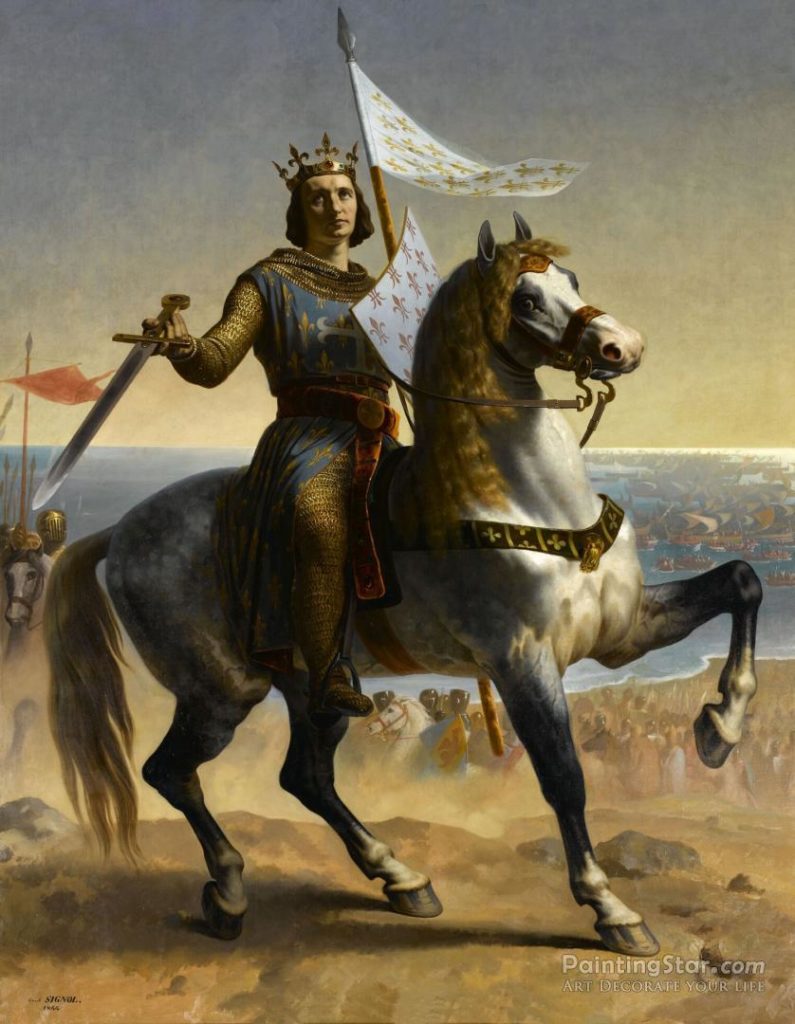Over the transom…
FAITH OF THE COUNT OF MONTFORT—ONE MUST NOT ENTER INTO CONTROVERSY WITH JEWS
The sainted king told me that several people among the Albigenses came to the Count of Montfort, who was then guarding the land of the Albigenses for the king, and asked him to come and look at the body of our Lord, which had become blood and flesh in the hands of the priest. And the Count of Montfort said, “Go and look at it yourselves, you who do not believe it. As for me, I believe it firmly, holding as holy Church teaches of the sacrament of the altar. And do you know what I shall gain,” said the count, “in that during this mortal life I have believed as holy Church teaches? I shall have a crown in the heavens, above the angels, for the angels cannot but believe, inasmuch as they see God face to face.”
He told me that there was once a great disputation between clergy and Jews at the monastery of Cluny. And there was at Cluny a poor knight to whom the abbot gave bread at that place for the love of God; and this knight asked the abbot to suffer him to speak the first words, and they suffered him, not without doubt. So he rose, and leant upon his crutch, and asked that they should bring to him the greatest clerk and most learned master among the Jews; and they did so. Then he asked the Jew a question, which was this: “Master,” said the knight, “I ask you if you believe that the Virgin Mary, who bore God in her body and in her arms, was a virgin mother, and is the mother of God?” And the Jew replied that of all this he believed nothing. Then the knight answered that the Jew had acted like a fool when—neither believing in her, nor loving her—he had yet entered into her monastery and house. “And verily,” said the knight, “you shall pay for it!” Whereupon he lifted his crutch and smote the Jew near the ear, and beat him to the earth. Then the Jews turned to flight, and bore away their master, sore wounded. And so ended the disputation.
The abbot came to the knight and told him he had committed a deed of very great folly. But the knight replied that the abbot had committed a deed of greater folly in gathering people together for such a disputation; for there were a great many good Christians there who, before the disputation came to an end, would have gone away misbelievers through not fully understanding the Jews.
“And I tell you,” said the king, “that no one, unless he be a very learned clerk, should dispute with them; but a layman, when he hears the Christian law mis-said, should not defend the Christian law, unless it be with his sword, and with that he should pierce the mis-sayer in the midriff, so far as the sword will enter.”

